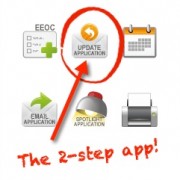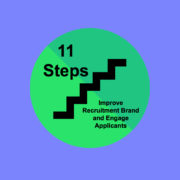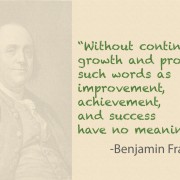Should Companies Bother Doing Exit Interviews? The DOs & DO NOTs!
Have you ever conducted an exit interview that was laughable? Or, maybe you had to endure one as a departing employee that you felt was a complete waste of time…or that you fibbed your way through in an attempt not to burn any career bridges on your way out the door. Personally, I believe in the value of exit interviews when they are designed carefully, and more importantly, when they are just one part of a broader effort by a company to regularly gather feedback from employees throughout the year, AND then actually do something with that feedback. The point I’m making…if the exit interview is normally the first time your organization actually asks an employee about his/her work experience, then just forget it because it will be a waste of your time and perceived as a feeble effort by management to the existing employees.
But because I’m a half glass full type person, let’s talk about ways to make it work – the DOs! Then, a few do NOTs you’ll want to avoid, as well.
The Right Way to DO Exit Interviews
- Do discuss with the individual how the information gleaned from the exit interview will be used in the organization, including people with whom the data will be shared. Indicate the level of anonymity that the person should expect and then follow-through on your promises when processing the feedback.
- Explain the possible positive outcomes of the exit interview; such as, additional training opportunities for existing employees, reduced turnover, investments in more resources and making strides toward the chance of winning back company alumni as employees again in the future. In addition, a smooth exit for an employee may improve your organization’s chances of winning new clients by referral down the road.
- Open the interview with an invitation for the person to give you an overview of his/her career progression through the company leading up to the decision to resign. You may find that many of your questions are answered just by listening to this account, and it will help guide your own line of questioning more organically moving forward in the interview.
- Keep in mind the typical reasons that someone will choose to leave an organization, listen to your departing employee’s answers, and then be flexible to adapt the interview based on his/her core reason(s). If the questions seem to flow well to the interviewee, then he/she is more likely to be candid with you in his/her responses.
- When organizational changes are made as a result of feedback from employees (both from exit interviews and just from periodic employee surveys and/or focus groups), be sure and shout it from the rooftops so that your company knows that management is serious about actually doing something with employee comments. What a powerful way to build employee engagement!
- Consider conducting the interview at an off-site location such as a coffee shop or restaurant. The employee may feel more at ease away from the office, especially if he/she has a lot of detailed comments to share about what could have caused him/her to stay with the company.
The Exit Interviewing DON’T List
- Don’t have hiring managers conduct an exit interview as the candidate will not be as candid with the person who was responsible for managing him/her. Have a trained representative from Human Resources at the helm, instead.
- If expectations happen to be set with the interviewee that the information will be truly anonymous (which is easier in a large organization rather than small businesses), then don’t do things like record notes on that person’s own record in an HRIS, performance management system or applicant tracking software (ATS). Automating the process of note recording through hiring software platforms may be permissible in some circumstances, but ONLY if the candidate understands how the information will be disseminated prior to divulging his/her comments to you.
- Don’t put in the effort to collect the information during the interview only to put it into a report that gets shared with the right people just once. Make sure your organization has mechanisms in place to prompt you to periodically review comments and actually come up with action steps for bringing about change as a result of the more compelling feedback received from departing employees.
- Consider your interview questions carefully, and don’t hammer away at the interviewee with a line of questioning that makes him/her feel attacked or uncomfortable…particularly if you haven’t done a thorough job of setting expectations about who will see the feedback and how it will be used. This is the quickest way for an exit survey to go south if the person feels like you are trying to get him/her to rat out other employees, etc. However, by asking appropriate questions and assuring the individual that he/she may skip any that cause alarm, you will be more likely to find out about the systemic situations in the organization that may need to be addressed…and before some of the bad ones may spread like a cancer across your workforce.
- If you realize five minutes into the discussion with someone that the interview will be weak, don’t try to lengthen it and force it to be helpful. Not all exit surveys will be as important as others, and that’s okay.
Remember that an exit interview is not a last ditch effort to get an employee to stay with your company; but rather, a means to mitigate future turnover and to prioritize the list of items that may need to be fixed in your organization to improve existing employee morale.
ExactHire provides hiring software solutions for small and medium companies. For more information about our products, please visit our resources page or contact us.










